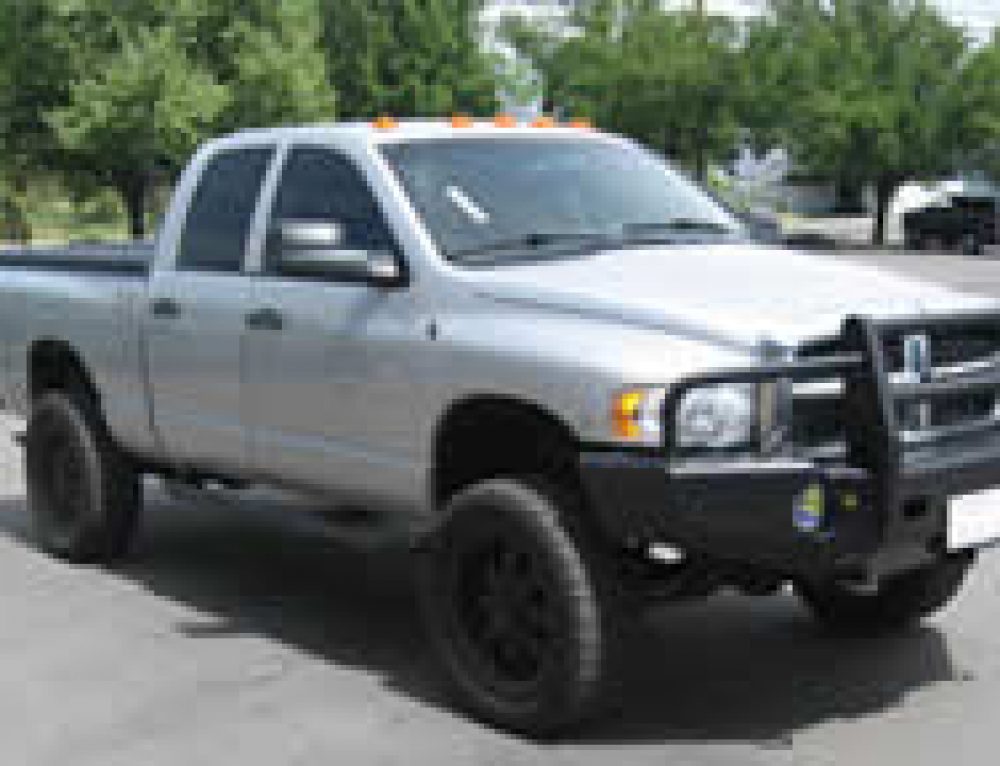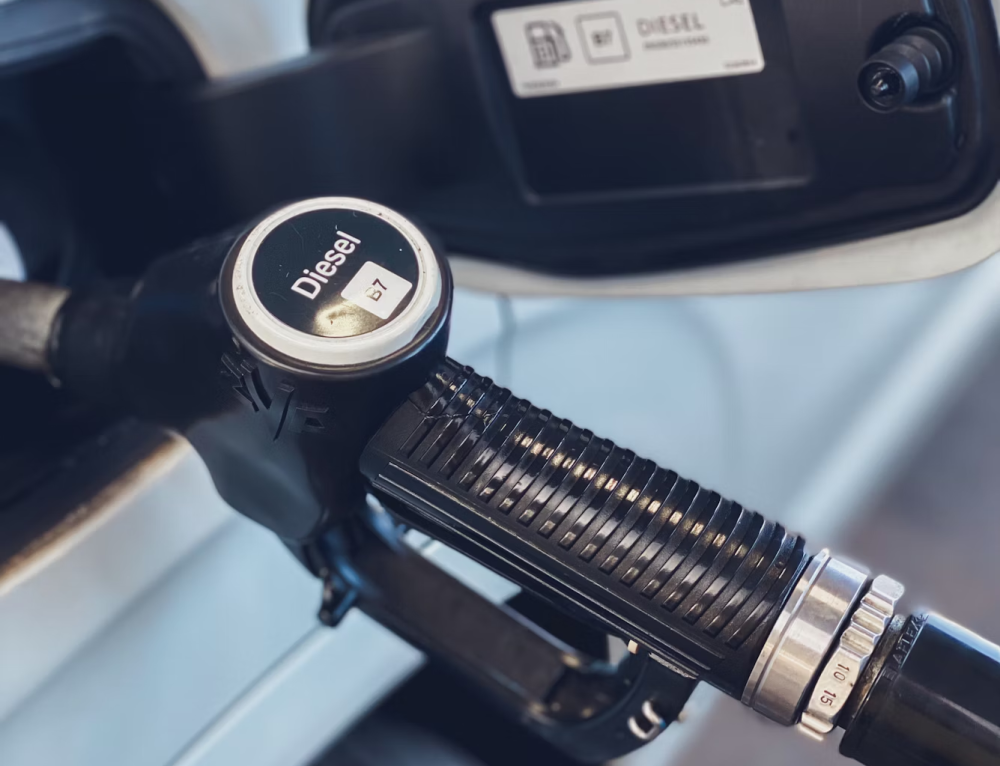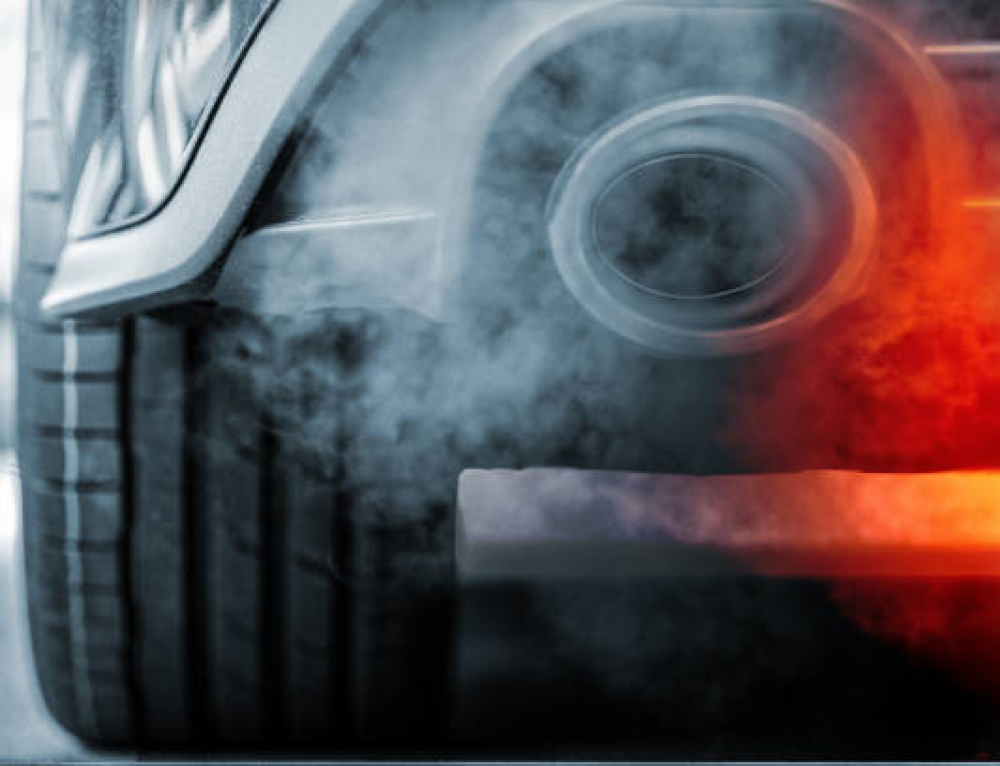Your truck’s engine and a glass of water have a complicated relationship. One gives life, the other… well, the other is a problem.
You’ve got water in diesel fuel in your fuel tank.
That’s not speculation. It’s a fact for virtually every diesel on the road. Even in the driest climates, water in diesel fuel contamination finds a way in. Given enough time, these small droplets accumulate and lead to serious issues.
This is one of the most common—and most expensive—water problems your engine can face. The symptoms of water can start small, like a slight hesitation, before ballooning into a major repair bill.
But you don’t have to be caught by surprise.
Here at Phoenix Diesel Repair, we’ve been helping truck owners just like you with this exact problem since 1978. We’d like to take a moment to explain how water gets into your diesel fuel, what to watch for, and how to fix it. Consider this your friendly primer on keeping your engine happy and dry.
How Water Finds Its Way In
It can seem like a bit of a mystery. How does water get into a sealed fuel system? It usually comes down to one of two culprits: the air around us or the fuel we buy.
The Air in Your Tank
Think about a glass of iced tea on a warm day. Notice the water droplets forming on the outside? That’s condensation — and the exact same process happens inside your fuel tank, all the time.
The empty space at the top of your tank is filled with air, which carries moisture, especially in humid environments. As your truck cools down after running, that moisture condenses into tiny water droplets.
Since water is denser than diesel fuel, these droplets sink to the bottom of the tank. This cycle repeats constantly, gradually increasing the water level. The easiest way to combat this is to keep your fuel tank as full as possible — less air space means less opportunity for condensation to form.
The Fuel You Pump
Sometimes, the trouble starts before the fuel even reaches your truck. The diesel fuel you buy is held in large, underground storage tanks at the gas station. If those tanks aren’t maintained properly, they can collect a lot of water.
This water in diesel fuel can cause serious issues. When you fill up, that water can be pumped right into your vehicle. This directly harms your diesel fuel quality. It’s a good reason to buy your fuel from busy, reputable stations, as their storage tanks are refilled more often, giving water less time to build up. Good fuel quality starts at the pump.
The Harm Water Can Cause
The moment water gets into your fuel, it starts causing problems. The effects of water range from simple rust to the total failure of some very expensive parts in your modern diesel fuel system.
Rust and Ruin
That water sitting at the bottom of the tank is a perfect recipe for corrosion. Tiny bits of rust can break off and get pulled into your fuel system.
Modern diesel fuel systems are marvels of engineering, but they are extremely sensitive. They use incredibly high pressure and rely on delicate components, like your injectors. These parts have microscopic openings and are lubricated by the diesel fuel itself.
When water in diesel fuel gets in, it replaces that lubricant. Instead of smooth operation, you get metal grinding against metal. This can destroy your injectors and high-pressure fuel pump in a hurry. This isn’t like an older gas tank, where ethanol in the fuel might absorb a little water. In diesel fuel systems, water is a direct threat.
Unwelcome Visitors
There’s another strange thing that happens when diesel fuel and water mix: things start to grow.
Where the water and fuel meet, a sludge can form. This is the result of microbial growth. Microbes and fungus—tiny living organisms—find this to be a perfect environment. They use the diesel as food, multiplying and creating a slimy sludge.
This gunk gets pulled toward your engine, clogging your fuel filters in no time. A clogged filter will starve your engine of fuel, causing poor performance or preventing it from running at all. This sludge is also acidic, which makes the corrosion in your tank even worse.
Signs That Your Truck Needs Help
Your truck is pretty good at letting you know when something is wrong. You just have to know what to look and listen for. The symptoms of water in your fuel are often subtle at first but will get progressively worse.
- Rough Performance: You might notice your engine running rough at an idle. When you press the gas, you could feel a hesitation or poor acceleration.
- Engine Sputtering: In more severe cases, the engine might sputter or misfire as it struggles to run. This happens when water enters the combustion chamber, disrupting the clean burn your engine needs.
- Hard Starts: You may have a difficult time starting your truck.
- Warning Lights: You might see a “Water in Fuel” light on your dashboard. This is a direct call for help.
- White Smoke: Another sign is white smoke coming from your exhaust, which is often water being turned into steam.
If you notice any of these signs, it’s time to listen to your truck.
How to Fix and Prevent Water Issues
The good news is that you can not only fix these problems but also prevent them. Your truck already has a line of defense, and with a little help, you can keep your fuel system safe.
Your Truck’s Best Friend: The Water Separator
Your diesel truck is equipped with a water separator. Its job is to filter water out of the fuel before it reaches your engine’s sensitive parts. This separator needs to be drained regularly. For most people, this is a simple maintenance task. If you don’t feel comfortable doing it, however, it’s a quick and inexpensive job for a professional.
A Little Help from Additives
Fuel additives can also be a big help, but you have to use the right kind.
- Demulsifiers: These additives help water separate more easily from the fuel, allowing your water separator to do its job more effectively. For most newer diesel fuel systems, this is the best option.
- Emulsifiers: Other additives break water into tiny droplets that mix with the fuel to be burned off. This can sometimes overload your system, so it’s important to know which product is right for your truck.
If you’re ever unsure, we’re always here to help you make the right choice.
Your Partner on the Road
Water contamination is a real and constant threat to your diesel engine. It starts quietly with a little condensation and can grow into a major problem that causes corrosion and encourages microbial growth.
But you don’t have to fight it alone.
Prevention goes a long way. If you suspect you have water in diesel fuel, or if you just want that peace of mind, give us a call. As your partner in diesel health, we’re here to keep your truck running strong and reliable. Trust the team that’s been keeping Phoenix on the road since 1978. We’ll check your fuel system and make sure your engine is protected for every mile ahead.
Frequently Asked Questions
What causes water in diesel fuel?
Water in diesel fuel usually comes from condensation inside the fuel tank or from contaminated fuel purchased at gas stations. Moist air causes condensation, and poor storage tanks can let water mix with diesel.
Why is water in diesel fuel a problem for my engine?
Water in diesel fuel can cause corrosion, rust, and damage to delicate fuel system components like injectors and fuel pumps. It also promotes microbial growth, leading to clogged filters and poor engine performance.
How can I tell if there is water in my diesel fuel?
Common signs of water in diesel fuel include rough engine performance, hard starts, sputtering, white smoke from the exhaust, and warning lights such as “Water in Fuel” on your dashboard.
Can water in diesel fuel damage my fuel injectors?
Yes. Water displaces the diesel’s natural lubrication, causing metal parts in the injectors and high-pressure fuel pumps to grind against each other, leading to premature wear and costly repairs.
How do I prevent water in diesel fuel contamination?
Keep your fuel tank as full as possible to reduce condensation, buy diesel from reputable stations with well-maintained storage tanks, regularly drain your water separator, and use appropriate fuel additives.
What is a water separator, and how does it help with water in diesel fuel?
A water separator is a filter in your diesel truck’s fuel system designed to remove water before it reaches the engine. Regular draining of this separator is essential to protect your fuel system from water damage.
Are fuel additives effective against water in diesel fuel?
Yes. Demulsifier additives help separate water from diesel so your water separator can remove it more efficiently, while emulsifiers mix water into tiny droplets that burn off with the fuel. Choosing the right additive depends on your truck’s system.
Is water in diesel fuel a common issue?
Yes. Even in dry climates, water in diesel fuel is a common problem caused by condensation and contaminated fuel. Addressing it early can save expensive repairs and keep your engine running smoothly.









